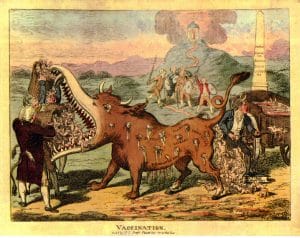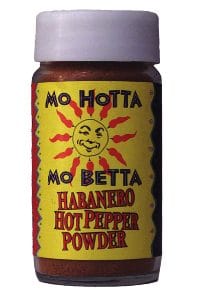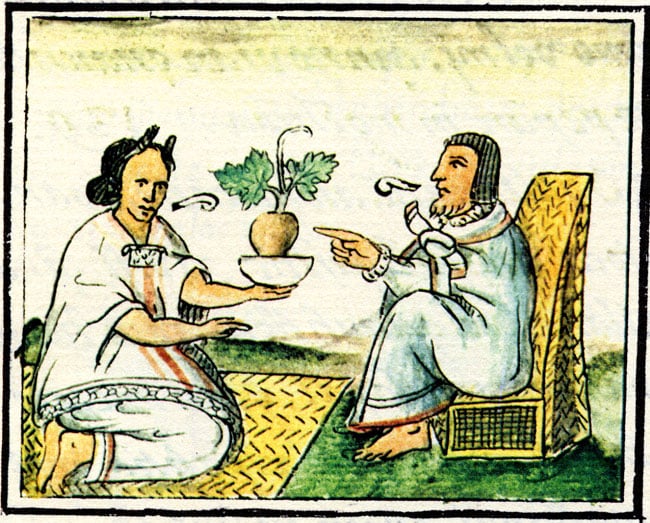 One of the problems with medicine is that it’s complicated. In fact, to paraphrase the great British author Douglas Adams, who penned the wonderful and hysterical Hitchhiker’s Guide to the Universe Series of books, medicine is more complicated than you might think, even if you start from the position of thinking that it’s pretty complicated in the first place. Many people however, are not particularly enthralled with complicated things, and prefer simple answers. Unfortunately, and to paraphrase the great H.L Mencken, the early 20th century American journalist and satirist, for every complex problem there is an answer that is clear, simple and wrong.
One of the problems with medicine is that it’s complicated. In fact, to paraphrase the great British author Douglas Adams, who penned the wonderful and hysterical Hitchhiker’s Guide to the Universe Series of books, medicine is more complicated than you might think, even if you start from the position of thinking that it’s pretty complicated in the first place. Many people however, are not particularly enthralled with complicated things, and prefer simple answers. Unfortunately, and to paraphrase the great H.L Mencken, the early 20th century American journalist and satirist, for every complex problem there is an answer that is clear, simple and wrong.
 I say this because, when it comes to vaccines for horses, the subject is really pretty complex. Although vaccines have been a wonderful development in the fight against disease, and lives both human and animal would be much worse off without them, they are also not without problems, and certainly not without questions. So, I thought I’d try to at least tackle a few common and complex vaccine questions that I get from time to time, in hopes of coming up with some answers that are, if not simple, at least helpful in making things a bit more clear, ot at least least monstrous. Here goes.
I say this because, when it comes to vaccines for horses, the subject is really pretty complex. Although vaccines have been a wonderful development in the fight against disease, and lives both human and animal would be much worse off without them, they are also not without problems, and certainly not without questions. So, I thought I’d try to at least tackle a few common and complex vaccine questions that I get from time to time, in hopes of coming up with some answers that are, if not simple, at least helpful in making things a bit more clear, ot at least least monstrous. Here goes.
WHY DO WE HAVE TO VACCINATE HORSES SO OFTEN?
The question that is usually posed runs along the lines of, “How come people don’t get vaccinated all the time but we’re constantly poking horses with needles?” – or something like that. I think it’s a very reasonable question (although the premise may be a bit flawed, as you’ll see).
 The answer(s) to the question largely come from uncertainty. That is, we’re uncertain about how well many equine vaccines work in the first place. It would be great it we – speaking on behalf of the veterinary community, I suppose – had a great wealth of information on how long vaccines actually protect horses from individual diseases. In human medicine, that information is available for many disease. In horses, it’s just not. So, to a certain extent, with many vaccines, we’re really just guessing as to the ideal interval. When you consider that vaccines appear to be, in general, fairly harmless…
The answer(s) to the question largely come from uncertainty. That is, we’re uncertain about how well many equine vaccines work in the first place. It would be great it we – speaking on behalf of the veterinary community, I suppose – had a great wealth of information on how long vaccines actually protect horses from individual diseases. In human medicine, that information is available for many disease. In horses, it’s just not. So, to a certain extent, with many vaccines, we’re really just guessing as to the ideal interval. When you consider that vaccines appear to be, in general, fairly harmless…
NOTE: We’ll get onto the “harm from vaccines” question shortly.
…. people tend to err on the side of “too much” vaccination, as opposed to “not enough.”
 We can say that certain vaccines, for example, tetanus and rabies, likely provoke an fairly extended immunity: extended being measured in terms of several years. However, throw in the fact that people don’t want to get rabies – understandably – and that the vaccine works very well to prevent it, laws were passed in many areas to mandate vaccination on a schedule to make sure that humans get some protection. Otherwise stated, it’s better that a horse get vaccinated too much than a human get sick from it being vaccinated not enough. And, frankly, I’m OK with that reasoning. On the other hand, it seems that a good number of equine vaccines have tetanus thrown in their just to add to the number of “ways” that can be said to be in a vaccine. (Along that line of thinking, “Four-Way” is probably better than “Three-Way” but perhaps not nearly as good as “Five-way.” “Six” or “seven” way vaccines, therefore, must be downright inspirational.)
We can say that certain vaccines, for example, tetanus and rabies, likely provoke an fairly extended immunity: extended being measured in terms of several years. However, throw in the fact that people don’t want to get rabies – understandably – and that the vaccine works very well to prevent it, laws were passed in many areas to mandate vaccination on a schedule to make sure that humans get some protection. Otherwise stated, it’s better that a horse get vaccinated too much than a human get sick from it being vaccinated not enough. And, frankly, I’m OK with that reasoning. On the other hand, it seems that a good number of equine vaccines have tetanus thrown in their just to add to the number of “ways” that can be said to be in a vaccine. (Along that line of thinking, “Four-Way” is probably better than “Three-Way” but perhaps not nearly as good as “Five-way.” “Six” or “seven” way vaccines, therefore, must be downright inspirational.)
However, some vaccines may not work that well at all. So, for example, the immunity produced by influenza- and herpes-virus vaccines appears to be fairly short-lived, and viruses change (mutate). That’s at least one reason why it may be advisable to vaccinate horses more frequently against these diseases; in fact, if you show your horse in competitions in most places, you’ll have to, for example, FEI and United States Equestrian Federation Rules mandate vaccination every six months. When you think about it, that’s why many people get yearly flu vaccines – and that’s also why the premise of the whole question is somewhat suspect, because some people do get vaccinated a lot.
Like I said at the onset, it’s complicated.
WHY DOES A MINIATURE HORSE GET THE SAME DOSE OF VACCINE AS A CLYDESDALE?
You’re probably used to giving medication to your horse based on his body weight. Those good folks that come up with medications figure out effective doses based on how much a horse weighs, and prescribe doses, accordingly. So, whereas 5 pills twice a day might be the prescribed dose for a 250 pound miniature horse, a 2000 pound Clydesdale might get four times that dose (I’m not talking about a particular drug here – just illustrating the concept).
 Vaccines, however, don’t work in the same way that drugs work. The horse’s body’s response is not based on the amount given. There’s a certain minimum “amount” of vaccine that’s needed to provoke an immune response: any immune response. For vaccines, it’s sort of an all-or-nothing thing. There is a little bit of a difference based on size, but not enough difference to make a difference. You can even see this cross-species, for example, 1 ml of a rabies vaccine might be required to immunize a puppy against rabies, but it will only take 2 ml to immunize that Clydesdale.
Vaccines, however, don’t work in the same way that drugs work. The horse’s body’s response is not based on the amount given. There’s a certain minimum “amount” of vaccine that’s needed to provoke an immune response: any immune response. For vaccines, it’s sort of an all-or-nothing thing. There is a little bit of a difference based on size, but not enough difference to make a difference. You can even see this cross-species, for example, 1 ml of a rabies vaccine might be required to immunize a puppy against rabies, but it will only take 2 ml to immunize that Clydesdale.
If you want to read a lot more about this, check out a nice article written by my friend, Dr. Brennen McKenzie. Even though it’s about dogs, it’s the same question – and a very good answer.
IS VACCINATION SAFE?
 People are prone to falling into a trap called the “Nirvana Fallacy.” It’s a trap that catches people across a spectrum of questions, not only about horses, but about most anything. In the Nirvana fallacy, people get in the habit of comparing something to perfection, and then criticizing that something for not being perfect. In so, doing, however, they forget about other possibilities. Here’s what I mean.
People are prone to falling into a trap called the “Nirvana Fallacy.” It’s a trap that catches people across a spectrum of questions, not only about horses, but about most anything. In the Nirvana fallacy, people get in the habit of comparing something to perfection, and then criticizing that something for not being perfect. In so, doing, however, they forget about other possibilities. Here’s what I mean.
Vaccines are not perfectly safe. That is, horses may have reactions to vaccines: fever, sore neck, off feed, and the like. Very occasionally, horses may have severe reactions to vaccines, for example, laminitis has been reported post-vaccination. This is, of course, very unfortunate. Nobody wants their horse to hurt; we’re giving horses vaccine to protect them, not to make them suffer. Happy, while unfortunate, these sorts of things are very uncommon, and, usually, quite transient.
 Having said that, it’s not irrational to think, “Well, if I don’t vaccinate my horse, he won’t have a vaccine reaction.” That’s certainly true. On the other hand, he might get a disease which a vaccine could have prevented, so it’s not like you avoid all problems by avoiding vaccines. In fact, humans are a great example of what you can happen when you avoid vaccines altogether. It’s been well-documented that in communities where large numbers of people avoid vaccines for their children, vaccine-preventable diseases such as measles go up. The problem with Nirvana is that it doesn’t really exist.
Having said that, it’s not irrational to think, “Well, if I don’t vaccinate my horse, he won’t have a vaccine reaction.” That’s certainly true. On the other hand, he might get a disease which a vaccine could have prevented, so it’s not like you avoid all problems by avoiding vaccines. In fact, humans are a great example of what you can happen when you avoid vaccines altogether. It’s been well-documented that in communities where large numbers of people avoid vaccines for their children, vaccine-preventable diseases such as measles go up. The problem with Nirvana is that it doesn’t really exist.
The bottom line with vaccine safety comes down to a risk:benefit analysis. If you’re one of those people whose horse has had a severe vaccine reaction, I’d certainly talk to your veterinarian. You might want to consider avoiding vaccines, or perhaps spacing them out, or switching brands. However, for most horses, most vaccines are very safe, and a reasonably effective way to try to prevent many equine diseases.
WHAT ABOUT TITERS?
When you vaccinate a horse, he mounts an immune response. To a certain extent, that immune response can be measured in the blood. So, it makes a lot of sense to think that one way you could decide how often to vaccinate by measuring the immune response in the blood, and vaccinating only when blood levels drop below a certain level.
 Back to how this article started. It’s complicated. Unfortunately, in horses, nobody knows what a protective titer is for vaccine-preventable diseases. It is certainly possible to get titers measured for a few equine diseases, but having that information is sort of like having information on the gross national product of Persia in the 19th century. It’s interesting and all, and maybe even useful if you’re doing your PhD on 19th century Persian economics, but what good will the information do you in the course of managing your day-to-day affairs? Plus, you have to pay for them. So, in my opinion, when it comes to titers and the decision to vaccinate your horse, it’s probably best just to save your money. The expense in assured. The benefit is unknown.
Back to how this article started. It’s complicated. Unfortunately, in horses, nobody knows what a protective titer is for vaccine-preventable diseases. It is certainly possible to get titers measured for a few equine diseases, but having that information is sort of like having information on the gross national product of Persia in the 19th century. It’s interesting and all, and maybe even useful if you’re doing your PhD on 19th century Persian economics, but what good will the information do you in the course of managing your day-to-day affairs? Plus, you have to pay for them. So, in my opinion, when it comes to titers and the decision to vaccinate your horse, it’s probably best just to save your money. The expense in assured. The benefit is unknown.
To sum things up, discussing vaccine questions can get really complicated. There are lots of questions and there are not always good answers. To be frank, when we vaccinate horses, we’re doing the best we can with a fairly limited amount of knowledge, trying to prevent diseases that, in some cases, aren’t even well-prevented with the current vaccines (herpesvirus and “strangles” are two good examples). Still, medicine moves forward, and it’s reasonable to think that vaccine technology is going to get better as time goes on. For now, though, there aren’t always good answers to good questions. It’s always good to keep asking, however.







